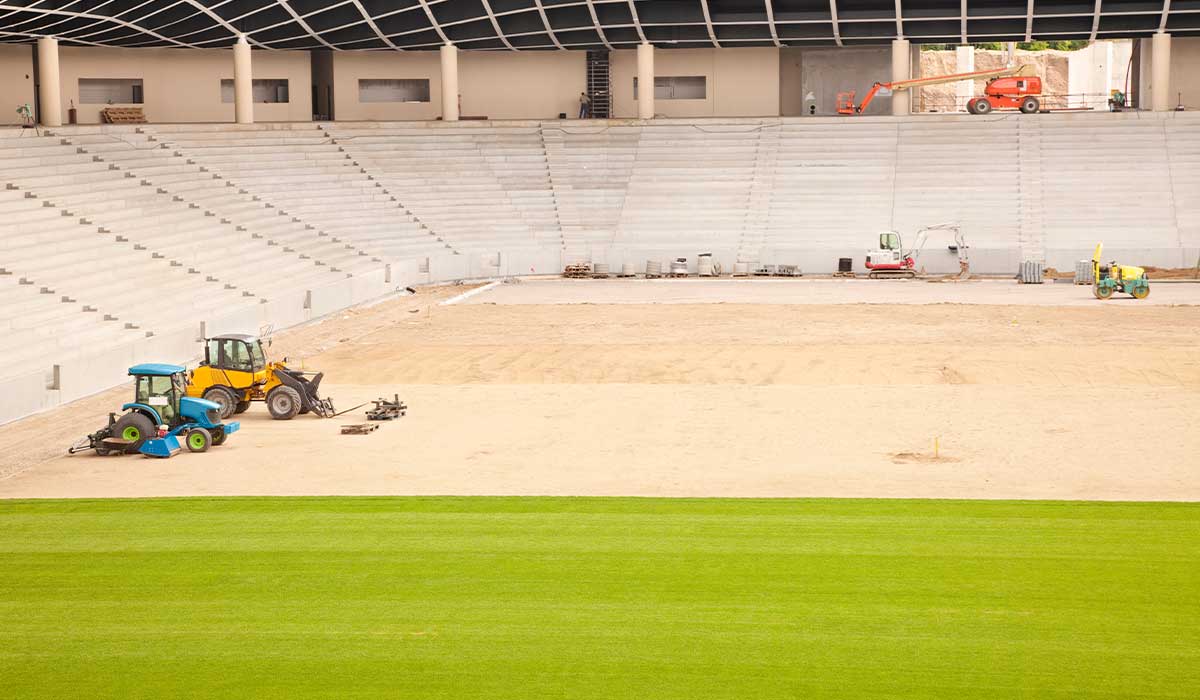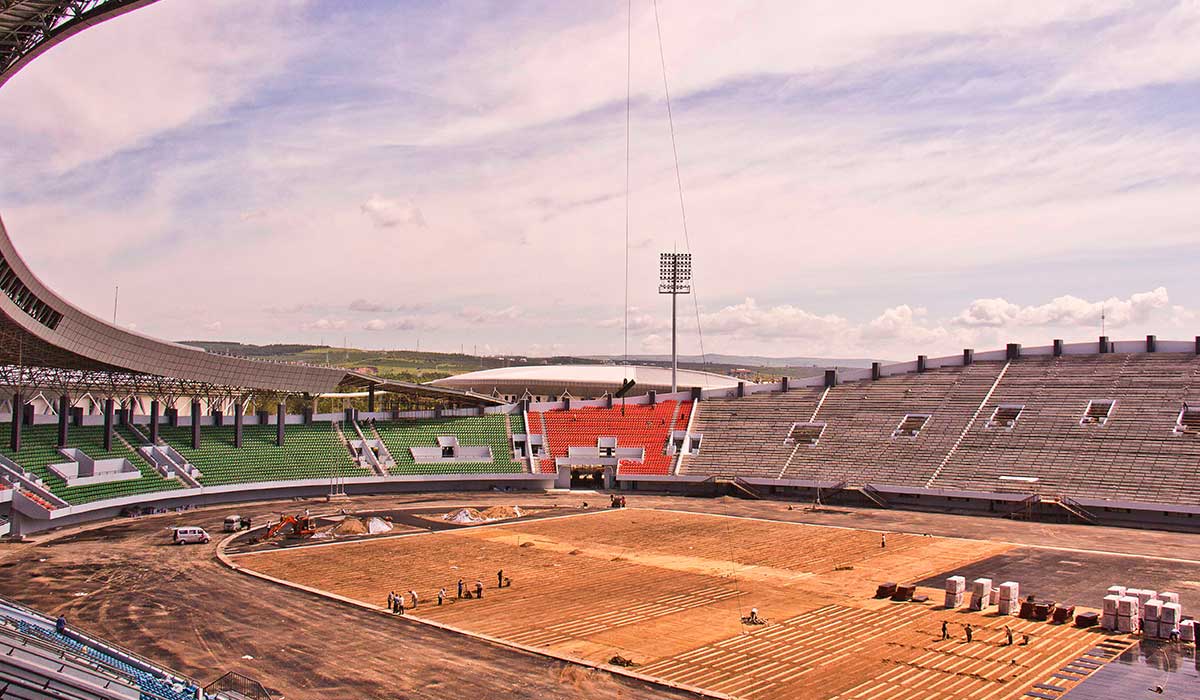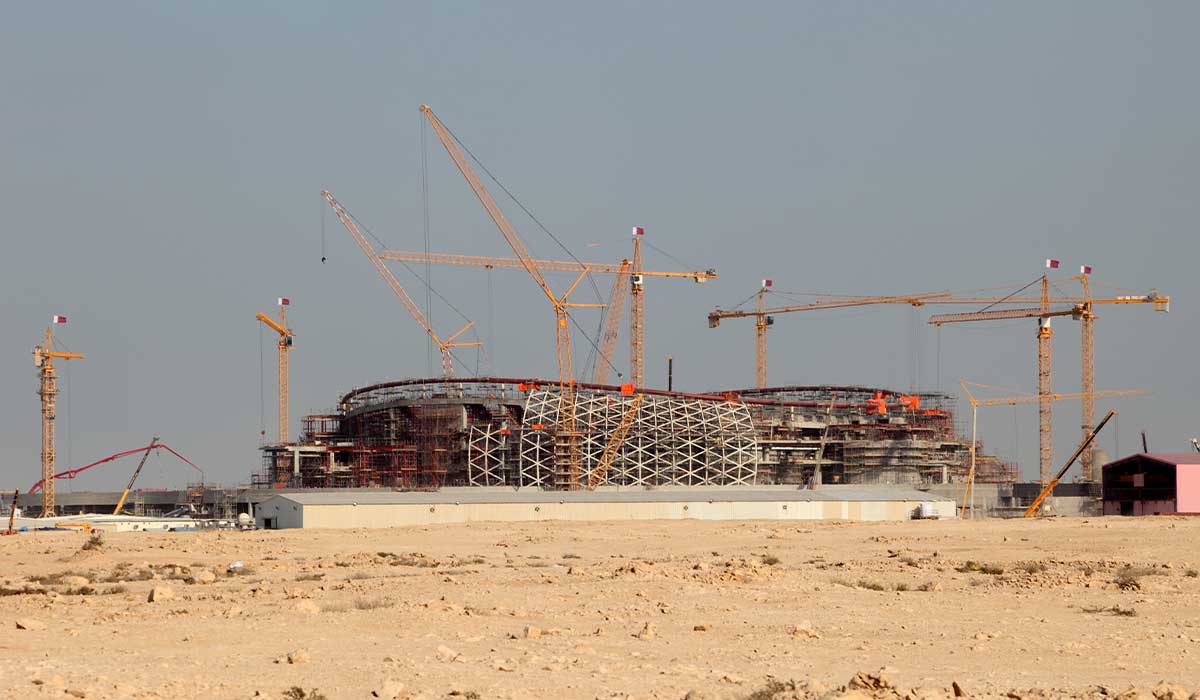When it comes to modern stadium construction, one of the most critical aspects is the choice of playing surface. As sports infrastructure evolves, hybrid grass has become a preferred solution in the design and construction of new-generation stadiums. Hybrid grass is the ideal combination of natural grass and artificial fibers, offering numerous benefits that address the challenges posed by weather conditions, durability, and maintenance. This innovation has gained significant popularity, particularly in stadiums, due to its ability to improve player performance while reducing the need for extensive maintenance.
The Role of Hybrid Grass in Stadiums
Traditional natural grass fields, while aesthetically pleasing, can be difficult to maintain. They often suffer from wear and tear due to high traffic, insufficient sunlight, and lack of air circulation, leading to frequent damage and high maintenance costs. This is where hybrid grass technology comes in. By integrating artificial fibers into natural grass, hybrid turf provides a durable and functional playing surface that significantly reduces maintenance time and costs. Hybrid grass has become a staple in stadiums worldwide due to its ability to withstand heavy usage, extreme weather conditions, and the wear associated with professional sports events.
Hybrid Grass Production for Stadiums
Hybrid grass is designed with specific purposes in mind: to protect the plant’s stem and strengthen its roots. The incorporation of geotextile carpet underneath the grass layer helps prevent compaction in the root zone, enhancing the turf’s durability. The roots of the grass are supported by artificial fibers, ensuring a more robust and resilient product. This combination allows hybrid grass to regenerate quickly and maintain a consistent, high-quality playing surface. Thanks to its unique properties, hybrid grass provides the perfect solution for stadiums that require a durable and sustainable turf option.

Key Features of Hybrid Grass for Stadiums
Hybrid grass, particularly the stitched variety, offers a range of features that make it an ideal choice for stadiums:
- Reduced Wear and Tear: Hybrid grass can withstand heavy use without showing signs of deterioration, making it ideal for high-traffic stadium environments.
- Surface Level Consistency: The blend of natural and artificial grass ensures a stable surface that maintains its level and smoothness.
- Increased Durability: With superior shear strength, hybrid grass can withstand the impact of intense gameplay.
- Longevity: Hybrid grass offers a much higher uptime compared to natural grass, making it a more cost-effective solution in the long run.
- Natural Grass Feel: Despite the inclusion of synthetic fibers, hybrid grass provides players with the same feel and comfort as natural grass.
When comparing hybrid grass to natural grass, it’s clear that hybrid turf offers significant advantages. Natural grass fields, while visually appealing, often require frequent repairs and are not as durable as hybrid grass. For stadiums, the longevity and reduced maintenance costs of hybrid grass make it the superior choice.
Advantages of Hybrid Grass in Stadiums
Integral Turf, a leading manufacturer of hybrid grass, has highlighted the numerous benefits that hybrid grass brings to stadiums. These advantages include:
- Weather Resistance: Hybrid grass is highly resistant to extreme weather conditions, ensuring a consistent playing surface year-round.
- Extended Playing Hours: Stadiums with hybrid grass can offer up to 3-4 times more playing hours compared to natural grass fields, which is especially beneficial for venues that host multiple events.
- Stronger Grass: The strong root system, supported by artificial fibers, prevents grass breakage, ensuring a more durable surface.
- High Regeneration Rate: Hybrid grass has a quick regeneration rate, meaning any damage to the field can be repaired quickly, ensuring minimal downtime.
- Aesthetic Appeal: Hybrid grass provides an always-green field, free from mud puddles and bare patches, making the stadium look pristine and well-maintained.
- Economic Benefits: Hybrid grass offers stadiums the opportunity to reduce maintenance costs and generate additional revenue through more frequent use.

Global Adoption of Hybrid Grass in Stadiums
Given the numerous benefits of hybrid grass, it is no surprise that it has become the turf of choice for some of the world’s most prestigious football clubs. Research indicates that hybrid turf is used in the stadiums of 45 clubs worldwide, including famous venues such as Emirates Stadium (Arsenal), Etihad Stadium (Manchester City), Old Trafford (Manchester United), White Hart Lane (Tottenham), St. James’ Park (Newcastle United), and Goodison Park (Everton). These clubs and stadiums have embraced hybrid grass for its durability, performance, and reduced maintenance requirements.
Integral Turf: Your Partner in Hybrid Grass Solutions
As one of the leading manufacturers of hybrid grass both domestically and internationally, Integral Turf continues to develop innovative solutions for stadiums and sports facilities. If you are looking to build or upgrade a stadium with high-quality hybrid grass, Integral Turf offers tailored solutions to meet your needs. Whether you’re constructing a new stadium or renovating an existing one, we can provide you with the best hybrid grass options, installation services, and support. Our hybrid grass solutions will ensure that your stadium remains durable, aesthetically pleasing, and functional for years to come. Fill out the form below to receive detailed information about the installation process, different hybrid grass options, and associated costs. Let Integral Turf help you create the ideal playing surface for your stadium!

